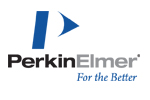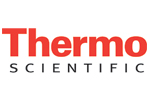08:00 | Registration |
09:00 | Strengths and Weaknesses of Microarrays in Diagnostics
Bertrand Jordan, Founder/Coordinator, Marseille Nice Genopole, France
The common perception that microarrays are superseded by NGS doesn’t take into account many features of clinical work. Microarrays may assess many entities of clinical interest besides DNA and definitely have a future in some of these fields. |
|
Session: Advances in Protein Arrays |
| |
10:00 | Unlocking Biomarker Discovery - Design of Antibody-Based Microarrays for High-Throughput Disease Proteomics
Christer Wingren, Associate Professor And Lecturer, Lund University, Sweden
Unlocking the proteome and delivering biomarkers to the clinic will be critical for early and improved diagnosis, prognosis, and classification. Our recombinant antibody-based micro- and nanoarrays designed for high-throughput disease proteomics and applications thereof will be presented. |
10:30 | Coffee and Networking in Exhibition Hall |
11:15 | Protein Microarray Technologies - Analysis of Signaling Networks in Tumours
Markus Templin, Head, University of Tuebingen, Germany
Complex data sets generated from limiting sample material allow the identification of differences in activation of signaling networks directly on the protein level. Protein microarray analysis during anti- cancer drug development will demonstrate the power of the technology. |
11:45 | A Systematic Investigation of Candidate Breast Cancer Progression-Associated Biomarkers Identified from Omic Screens: Leveraging Antibody-Based Proteomics
William Gallaghr, Chief Scientific Officer/Professor, OncoMark Limited/University College Dublin, Ireland
A key bottleneck in the translation of discoveries from transcriptomic and proteomic screens into clinically viable diagnostics relates to current deficits in relation to antibody availability. This presentation provides a case example of how antibody-based proteomics can be applied to transition candidate breast cancer progression-related biomarkers from such omic screens. |
12:15 | Lunch and Networking in Exhibiton Hall |
12:45 |  Free Workshop Free Workshop
Advancement of Separation, Purification and Crystallography from Agilent Technologies
|
13:15 | Poster Viewing |
13:30 |  Free Workshop Free Workshop
High Content Screening for Compounds and Genes Affecting Bacterial and Viral Infections
|
14:15 |  | Keynote Presentation Immunoassays in Multiplex for Biased and Unbiased Proteomic Research
Thomas Joos, Deputy Managing Director, University of Tuebingen, Germany
This presentation discusses a simple and efficient way to overcome current limitations of multiplexing sandwich immunoassays and a strategy to cover a wide range of any given proteome with a minimal set of antibodies. |
|
14:45 | Kidney & Liver Biomarker Toxicity Identification from Gene Expression Data via Incorporation of Biological Network Information
Robert Russell, Professor, University of Heidelberg, Germany
I will discuss our efforts to discover biomarkers for liver and kidney toxicities using gene expression data and an innovative biological interaction network based in silico approach which highlights new and old candidates. |
15:15 | Coffee and Networking in Exhibition Hall |
16:00 | Silicon Chips with Dual Label-Free and Fluorescence Detection for High Sensitivity Diagnostic Protein Microarrays
Marina Cretich, Researcher, National Research Council, Italy
In this work, we propose a new silicon chip for protein microarray development, fabrication and validation. The chip allows, within a single experiment on the same surface, label-free imaging of the arrayed protein probes coupled with high sensitivity fluorescence detection of the molecular interaction counterparts. |
16:30 | Phosphoproteomic-Based Systems Pharmacology
Leonidas Alexopoulos, Group Leader, National Technical University of Athens, Greece
High throughput proteomic technologies and systems biology algorithms are combined to construct signaling pathways for normal and diseased cells, identify drug mode of action, and predict drug toxicity and efficacy. |
17:00 | Ultra Low Volume Liquid Handling: Picoliter and Nanoliter Applications in Biosensors, Microarrays, Lab-On-A-Chip and HCS
Holger Eickhoff, Chief Executive Officer, Scienion AG, Germany
Saving precious samples and reagents are key to minimize costs in pharmaceutical screening and the development of new diagnostic tests. Handling small amounts of liquids with tiny dead volumes is a key part to achieve this. |
17:30 | Drinks Reception |






